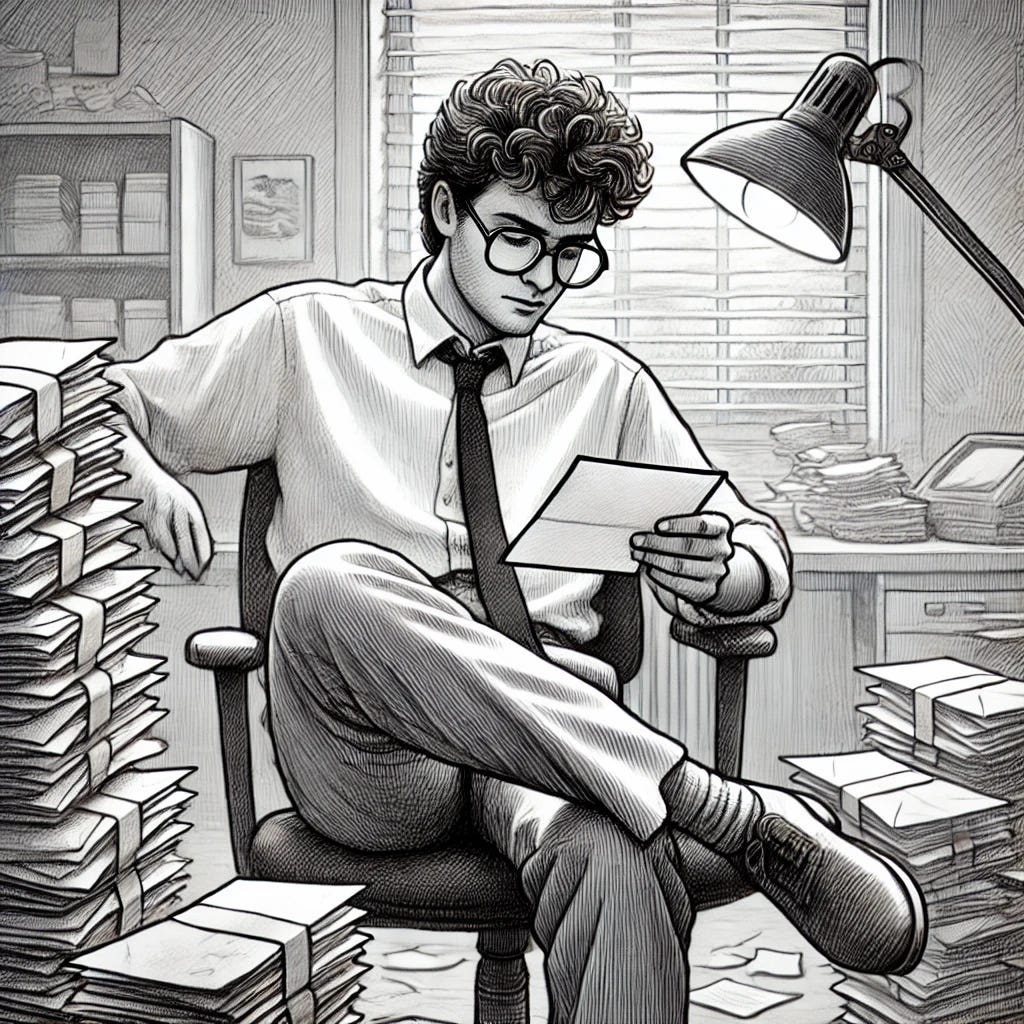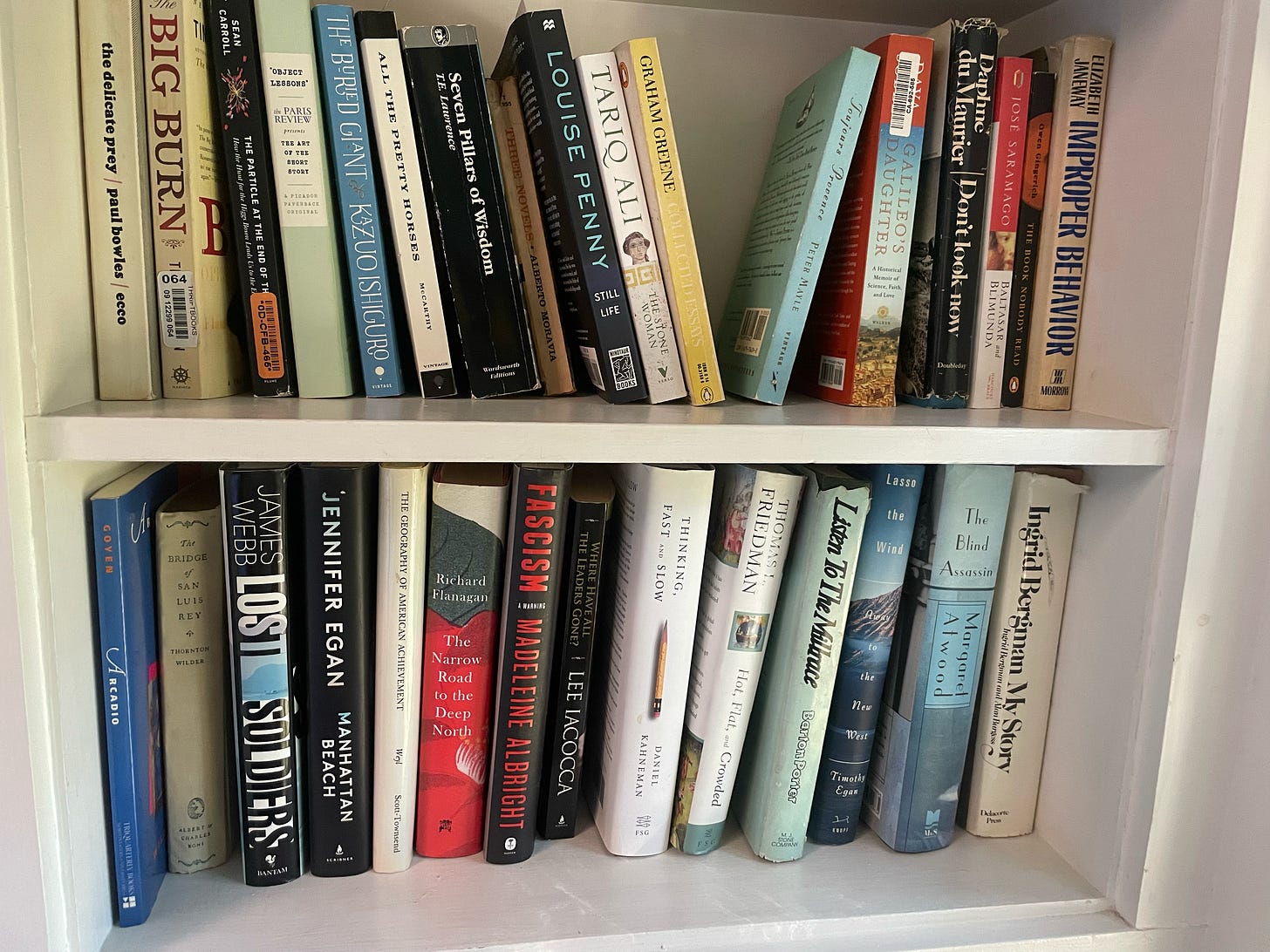Why Aleysha Ortiz can’t read
A Hartford tale
I was stunned to read this piece in the local nonprofit CT Mirror about a Hartford high school graduate who never learned to read, and is now demanding redress from the public school system:
When 19-year-old Aleysha Ortiz told Hartford City Council members in May that the public school system stole her education, she had to memorize her speech.
Ortiz, who was a senior at Hartford Public High School at the time, wrote the speech using the talk-to-text function on her phone. She listened to it repeatedly to memorize it.
That’s because she was never taught to read or write — despite attending schools in Hartford since she was 6.
She can’t even read one-syllable words. It’s heartbreaking. Read the whole thing, or listen to the podcast that goes with it.
I confess that I sometimes don’t know what to say when I read these tales of woe from urban public schools. I have had children in the public schools of my city, where they have had some excellent teachers and have generally thriven. But given their socioeconomic background, and the cultural capital they get from their parents, one would expect them to thrive; I have seen less advantaged classmates of theirs fall through the cracks.
One family I know well in my city tells the story of their daughter, a junior, who is currently in a public high school where she has not had a permanent science teacher yet this year, and the substitute teacher shows them Law & Order episodes. In English class, they are not reading any books (although there are some small writing assignments). (I have generally found that the public schools assign almost no books these days, and the reasons I have gotten include “students won’t read for homework” and “they lose the books.”) At this high school, there is an AP track for very strong students, who I think are getting more of an education; but for the normie, middle-of-the-pack students, what they get is simply shameful.
I know the causes. For the substitute-teacher issue, the problem is principally a teacher shortage, caused in part by lower salaries than the suburbs. Where I live, in New Haven, teachers do okay, at least compared to, say, Mississippi teachers. Here is the salary schedule for last year:
But the suburbs pay better still, and often lure away teachers. And irrespective of salaries, many teachers would rather teach in more bucolic settings, with fewer “problem” children (often traumatized by poverty). Our children’s K-8 elementary school lost two principals in five years to the suburbs: one left for Branford, the other for Greenwich. One was white, one black, both with families to provide for.
Then there is the general chaos of a high-poverty city. And the low regard in which society holds public education. And the blowback against “tracking,” which means teachers are often expected to educate classes of widely varying ability levels.
And of course there is my reliable whipping boy, phone in schools. But on this matter, anyway, schools are getting the hang of it.
Oh, as for Mississippi teachers’ salaries? This is from the Miss. department of education. Read it and weep:
The slush pile
Over at his Substack newsletter, former New Yorker editor Michael Agger continues his charming writing about his old job. Recently he cast his eye backward on the slush pile, the unsolicited manuscripts
There were all kinds of strategies on the part of the slush-pilers. Wax seals and embossed letterheads, as if to overwhelm the reader with prestige. The entreaty that also tried to create a dare: “No one in hell is ever going to read this but if anyone cares, it’s a story about . . .” The mention of distant connections: “My aunt’s college roommate worked at the magazine. . .” The pure desperation: “Any response will encourage me to keep going, please please please please respond.”
In this issue of the newsletter, Michael also included a line drawing of, I think, himself, perhaps AI-generated. In any event, it looks like him:
And I run this li’l magazine
I would be remiss if I didn’t mention what is up with Arc, the magazine, about religion, politics, and culture, that I just relaunched for the Danforth Center, at WashU in St. Louis. It’s safe to say that the piece that has gotten us the most attention so far is “The Illiberalism of Marilynne Robinson,” Blake Smith’s essay about the novelist and essayist Marilynne Robinson, which is notable not only for its sheer intelligence but also for not treating Robinson as a secular saint, one of those figures beyond reproach (cf. Elie Wiesel, Oprah Winfrey, Maya Angelou, Mother Teresa).
But on this October 7, the one-year anniversary of the Hamas attack against Israel, I’d encourage you to check out Shaul Magid’s “Is Religion Really the Problem?” But also Sara Tillinger Wolkenfeld’s essay on being polite to Siri and other AI, Willard Spiegelman on the decline of the Ethical Culture movement, and Stephanie Butnick on the new Netflix series about a rabbi with a Gentile girlfriend (we got there before the Times did, and we like the show more).
But don’t take my word for it—please sign up for our FREE newsletter, so the new stories just keep coming to you.
The best B&B bookshelf ever
Mrs. Oppenheimer and I went away to Vermont for the weekend, and we stayed at the Fan House, in Barnard. It’s the bed-and-breakfast, run by the estimable Sara Widness, that we stayed in the weekend that we got engaged … and the day after our wedding, the first night of our honeymoon … and sometime around our one-year anniversary. Then we began having children, stopped going away, and didn’t make it back for almost twenty years.
And then we did, and it was as beautiful as ever. I am sorry I didn’t snap a picture of the peak foliage we saw, but I did take this picture, of the built-in bookshelf in our room:
Just so you don’t have to squint, I’ll tell you: Ishiguro, Cormac McCarthy, Jennifer Egan, Richard Flanagan, Graham Greene, Paul Bowles. It’s like the syllabus of all the great novels I have yet to read. I wish I could have checked in for a month and just read through them all, then emerged into the Vermont winter.
Farewell to the great Ken Page
For three years—I think the years that I turned eleven, twelve, and thirteen—for my birthday my father took me to New York to see three Broadway plays in two days: a Friday show, Saturday matinee, and a Saturday night show. This was back in the days when I thought I wanted to be an actor (a story for another time). One of the shows we saw was the revival of Ain’t Misbehavin, with the great Ken Page. He died on Monday. He shall be missed. Watch this—Page comes in at the 1:00 mark:






